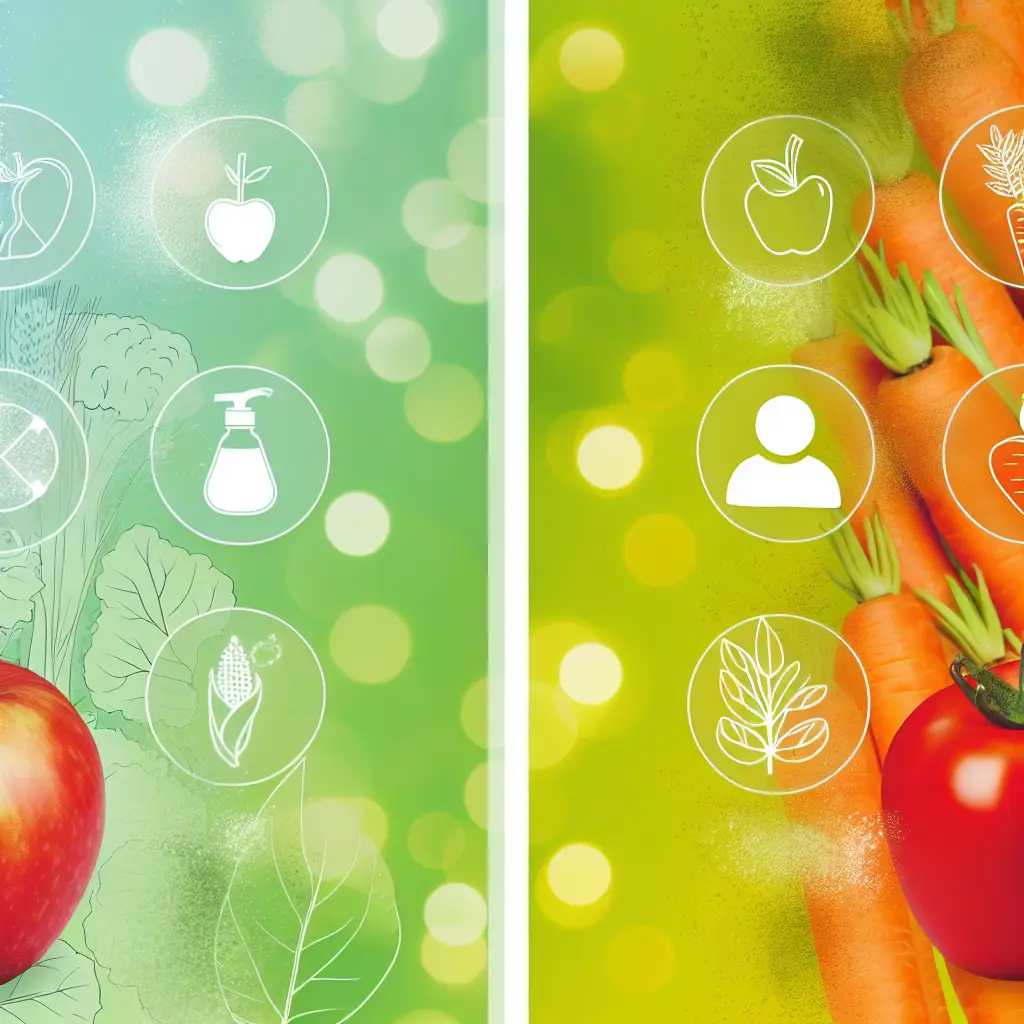
Impact of Pesticides on Daily Vegetables and Fruits and the Remedy
Pesticides are a double-edged sword — while they offer protection against pests and diseases, they come with their own set of drawbacks, particularly when it comes to their impact on the food we consume daily. In this blog post, we will delve into the effects of pesticide residues on daily vegetables and fruits, and discuss practical remedies to mitigate these risks.
Understanding Pesticides and Their Usage
Pesticides are chemical substances used to eliminate or control pests that can damage crops. They include:
- Insecticides
- Herbicides
- Fungicides
Their wide-ranging use ensures higher crop yields and less waste, which is crucial for feeding the world’s growing population. However, these substances do not only target harmful pests; they can also affect beneficial insects, soil microorganisms, and even human health.
Why Pesticides Are a Concern
The primary issue with pesticides is that they often leave **residues** on the food we eat. These residues can be ingested and accumulate in the human body over time.
- Health Risks: Long-term exposure to pesticide residues can lead to chronic health problems including cancer, neurodegenerative diseases, and hormonal disruptions.
- Environmental Impact: Pesticides can seep into groundwater, contaminate rivers and lakes, and negatively affect wildlife.
- Bioaccumulation: Certain pesticides are persistent in the environment and can accumulate in the food chain, posing risks to both animals and humans.
Pesticide Residues on Vegetables and Fruits
Fruits and vegetables are often sprayed with pesticides multiple times during their growth cycle. Some of the most commonly affected produce includes:
- Leafy Greens: Spinach, lettuce, and kale can retain significant pesticide residues even after washing.
- Soft Fruits: Strawberries, peaches, and grapes have porous skins that can absorb more pesticides.
- Root Vegetables: Potatoes and carrots can absorb pesticides from the soil.
Detecting Pesticide Residues
Although washing with water can reduce some pesticide residues, it is not entirely effective. Some fruits and vegetables may retain residues even after thorough washing. Testing for pesticide residues typically requires laboratory analysis but there are home test kits available for consumer use.
Remedies to Mitigate Pesticide Exposure
Opting for methods to reduce exposure to pesticides can help safeguard your health. Here are some strategies to consider:
1. Go Organic
- Choosing organic produce can significantly reduce your exposure to pesticide residues because organic farming practices often involve natural pest control methods rather than synthetic chemicals.
2. Wash Produce Thoroughly
- Use a mixture of water and vinegar (1:3 ratio) to wash your fruits and vegetables. Vinegar can help remove some of the pesticide residues from the surface.
- Commercial produce washes can also be effective in removing surface residues. (CLICK HERE TO BUY A GOOD CLEANER FOR YOUR DAILY VEGITABLES AND FRUITS WASH)
3. Peel and Trim
- Peeling fruits and vegetables can help reduce the intake of pesticide residues present on the skins.
- However, note that peeling can also remove valuable nutrients found in the skins.
4. Grow Your Own
- Growing your own vegetables and fruits ensures you have complete control over what goes on and into your produce.
- Use natural pest control methods like neem oil, soap sprays, and biological pest control.
5. Support Sustainable Farming Practices
- Purchasing from local farmers who practice sustainable and low-pesticide farming can help reduce overall pesticide usage.
6. Educate Yourself
- Stay informed about which fruits and vegetables are known to have higher pesticide residues by checking resources like the Environmental Working Group’s (EWG) annual reports. for example , Seventy-six percent of the samples of spinach(a green leafy vegitable known for its health benefits among entire population of world) contained residues of permethrin, a neurotoxic insecticide. Since 2000, Europe has not permitted any permethrin to be used on food crops. But what about India?
Conclusion
While pesticides are instrumental in ensuring food security, their residues on daily vegetables and fruits pose significant health risks. By making informed choices — such as opting for organic produce, washing fruits and vegetables thoroughly, peeling, growing your own produce, and supporting sustainable farming practices — you can significantly reduce your exposure to harmful pesticides. Always stay informed and proactive in ensuring the safety of the food you consume.
Remember, the steps you take towards reducing pesticide exposure not only benefit your health but also contribute to a healthier environment and a more sustainable agricultural system.
“`










